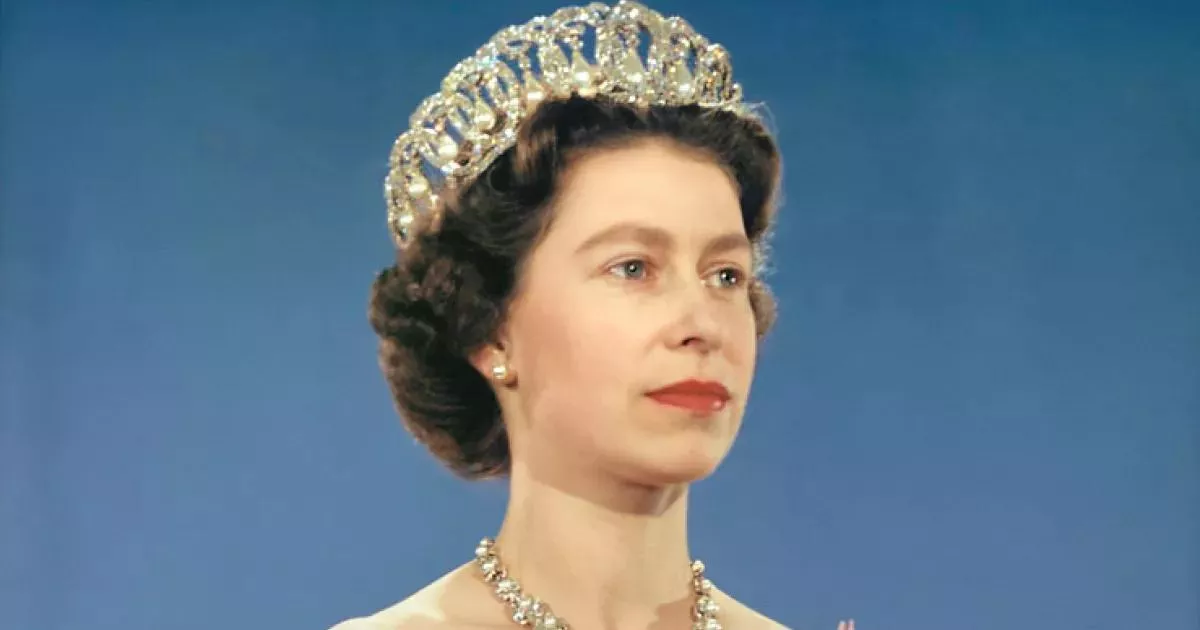Controversies are a part of history. Explore the biggest scandals linked to Elizabeth II.
Elizabeth II reigned as Queen of the United Kingdom and other Commonwealth realms from 1952 until her death in 2022. She ruled 32 sovereign states during her lifetime, and 15 at the time of her death. Her reign, lasting 70 years and 214 days, is the longest of any British monarch and the second-longest of any sovereign. She also holds the record as the longest-reigning queen regnant in history.
1957: First Major Personal Criticism of Elizabeth
In 1957, Elizabeth faced her first major personal criticism when Lord Altrincham accused her of being "out of touch" in a magazine. This criticism sparked public outrage and debate.
1957: Criticism from Lord Altrincham
In 1957, Lord Altrincham criticised Elizabeth's speeches, saying they sounded like those of a "priggish schoolgirl".
1963: Macmillan's Resignation and Appointment of Alec Douglas-Home
In 1963, Macmillan resigned, advising Elizabeth to appoint Alec Douglas-Home as the prime minister, which she did. This appointment led to further criticism regarding the selection process.
1966: Aberfan Mining Disaster
In 1966, Elizabeth was criticized for waiting eight days before visiting the village of Aberfan, where a mining disaster killed 116 children and 28 adults. The delay was later regretted.
1977: Trudeau pirouetting behind Elizabeth
In 1977, Prime Minister Pierre Trudeau pirouetted behind Elizabeth's back at Buckingham Palace. This was seen as a sign of disrespect.
1983: Mental Health Act 1983
Jaswant Singh Chail, who attempted to assassinate the Queen, was placed under a hybrid order under section 45A of the Mental Health Act 1983, ordering that he remain at Broadmoor Hospital to be transferred into custody only after receiving psychiatric treatment.
1984: Miners' Strike Comment
During a royal tour of The Times' offices in 1984, when asked about the miners' strike of 1984–85, Elizabeth replied that it was "all about one man" (a reference to Arthur Scargill).
July 1986: Worries over Thatcher's policies
In July 1986, The Sunday Times reported that Elizabeth II was worried about Margaret Thatcher's economic policies, which she believed fostered social divisions. She was also alarmed by high unemployment, riots, the miners' strike violence, and Thatcher's refusal to sanction South Africa's apartheid regime.
September 1986: Royal Family Media Coverage
In September 1986, Donald Trelford wrote in The Observer that the media coverage of the royal family had become so intense that the boundary between fact and fiction was blurred, with some papers not caring about the truth of their stories.
1987: Criticism and Political Events
In 1987, Elizabeth II became a target of satire after younger royals participated in 'It's a Royal Knockout.' She publicly supported divisive constitutional amendments in Canada, drawing criticism. Additionally, the elected Fijian government was deposed in a military coup, and Elizabeth supported the Governor-General's attempts to negotiate a settlement.
November 1992: Annus Horribilis Speech
In November 1992, Elizabeth II described 1992 as her 'annus horribilis' during a speech marking her Ruby Jubilee. This was due to increased republican sentiment, press scrutiny of her wealth, marital issues within her family, a fire at Windsor Castle, and general criticism of the monarchy. In the same month, demonstrators threw eggs at The Queen during a state visit to Dresden.
October 1995: Hoax Call Incident
In October 1995, Elizabeth II was tricked by a radio host impersonating the Canadian prime minister, during which she expressed support for Canadian unity regarding Quebec's referendum.
2003: Lawsuit against Daily Mirror
In 2003, Elizabeth II sued the Daily Mirror for breach of confidence after a reporter posed as a footman at Buckingham Palace and obtained an injunction preventing the newspaper from publishing gathered information.
May 2007: Report on Frustration with Blair's Policies
In May 2007, The Daily Telegraph reported that Elizabeth II was "exasperated and frustrated" by Tony Blair's policies, particularly concerning the British Armed Forces' involvement in Iraq and Afghanistan.
2014: Scottish Independence Referendum Comment
After the 2014 Scottish independence referendum, Prime Minister David Cameron was overheard saying that Elizabeth was pleased with the outcome. She had arguably issued a public coded statement about the referendum by telling one woman outside Balmoral Kirk that she hoped people would think "very carefully" about the outcome.
February 2023: Jaswant Singh Chail Pleads Guilty
In February 2023, Jaswant Singh Chail pleaded guilty to attempting to injure or alarm the sovereign, and was sentenced in October to a 9-year custodial sentence plus an additional 5 years on extended licence. The sentencing judge also placed Chail under a hybrid order under section 45A of the Mental Health Act 1983, ordering that he remain at Broadmoor Hospital to be transferred into custody only after receiving psychiatric treatment.
Mentioned in this timeline
Saudi Arabia officially the Kingdom of Saudi Arabia KSA is...
India officially the Republic of India is a South Asian...
New Zealand is an island country in the southwestern Pacific...

Christmas is an annual festival celebrated on December th commemorating...
Hong Kong is a densely populated special administrative region of...
China officially the People's Republic of China is an East...
Trending
12 minutes ago NOAA's Spring Weather Outlook: Updated Forecasts for Texas and Northeast Ohio Released

12 minutes ago Daria Snigur and Viktorija Golubic to face off in the Oeiras 2 Jamor Indoor final.

12 minutes ago Diggins eyes Olympic finale as Karlsson withdraws from 50km cross-country due to fever.
3 days ago Alaska Airlines pilots get shocking pay raises, reshaping network and margins.
1 hour ago Hawaiian Airlines to update Airbus A330 cabins, shed widebody planes amid Alaska growth.
1 hour ago Ramadan Fasting Times Vary Globally: A Look at Suhoor and Changing Timelines
Popular

Jesse Jackson is an American civil rights activist politician and...

Barack Obama the th U S President - was the...

Bernie Sanders is a prominent American politician currently serving as...

Ken Paxton is an American politician and lawyer serving as...

Michael Joseph Jackson the King of Pop was a highly...
WWE Raw a professional wrestling television program by WWE airs...
